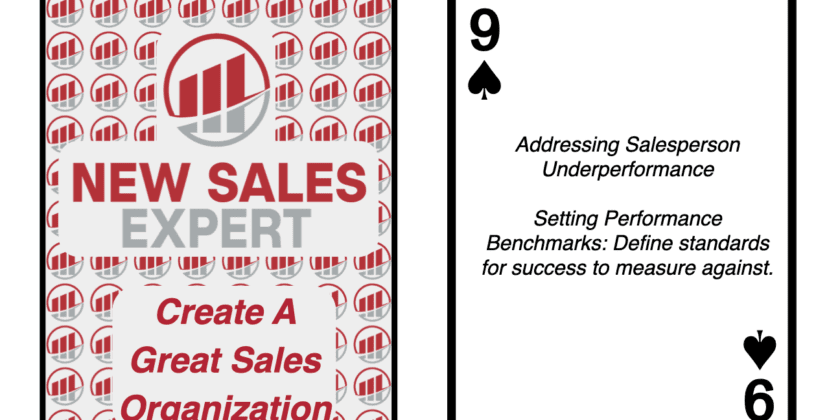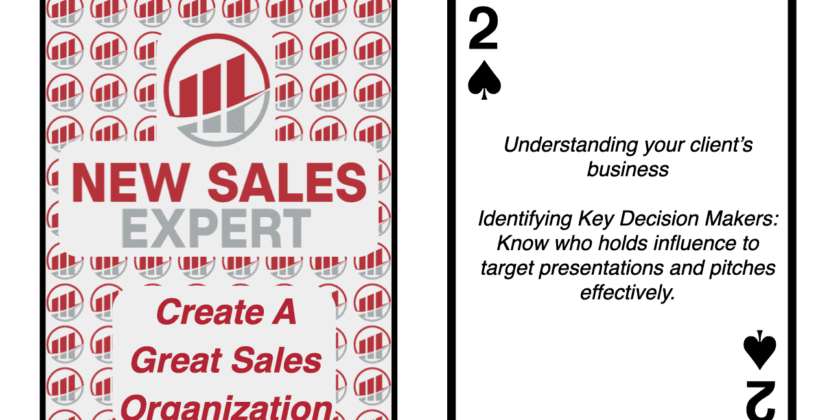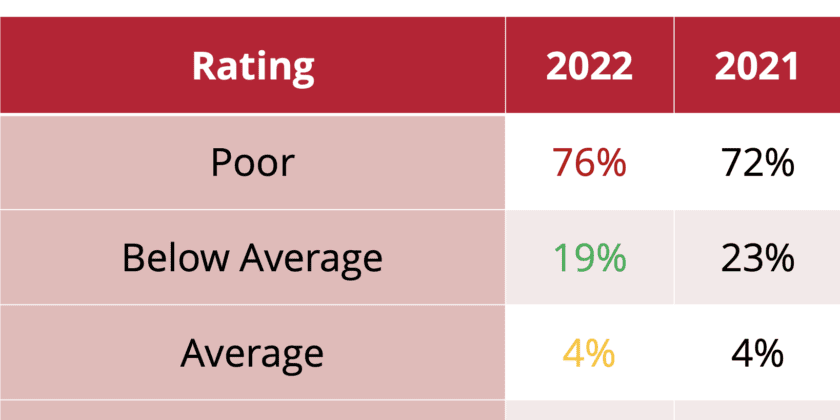
In B2B sales, professionals grapple with many challenges that can make or break their success. Clearly articulating a unique selling proposition (USP) stands out as a cornerstone for distinguishing oneself from the competition. This capability is not just a nicety—it’s a necessity. As businesses strive to carve out their niche in crowded markets, understanding and communicating what makes them distinct becomes paramount.
The concept of a USP or value proposition is often used interchangeably, yet its essence lies in differentiation. It’s about answering the pivotal question: why should customers choose you over others? This query isn’t trivial; it’s fundamental to the survival and growth of any business. As we delve deeper, it becomes evident that the challenge isn’t just about having a unique offering but about ensuring that every sales and leadership team member can communicate this uniqueness consistently and effectively.
The repercussions of failing to do so are significant. A disjointed message can lead to confusion in the marketplace, eroding trust and making it difficult to attract and retain customers. Furthermore, in an era where talent is a key competitive advantage, a clear and compelling USP can also be a magnet for attracting top sales talent. Articulating what sets a company apart is crucial for winning customers and building a strong, cohesive sales team.
Achieving alignment on a USP requires a deliberate effort. It involves going beyond superficial statements that could apply to any company and digging deep to identify what truly makes your business special. This process can be challenging, requiring businesses to engage in introspection and sometimes difficult conversations. However, the rewards of getting it right are substantial. A well-articulated USP can be the foundation for all sales and marketing efforts, providing a clear, compelling reason for customers to choose your company.
One effective strategy for uncovering your USP is to engage directly with your customers. Businesses can gain often overlooked insights by understanding why they chose your company and what they value most about your offering. This customer-centric approach helps refine your USP and ensures that it resonates with the people you aim to serve.
Furthermore, consistency in communication is key. It is crucial that everyone from the sales team to the marketing team and the CEO can articulate the USP consistently. This doesn’t mean reciting a scripted message but rather understanding the core essence of what makes the company unique and being able to convey that in various contexts.
Communicating a unique selling proposition is not just a sales challenge; it’s a strategic imperative for businesses aiming to thrive in the competitive landscape of B2B sales. It requires a concerted effort to identify, articulate, and consistently communicate what makes your business unique. By doing so, companies can differentiate themselves in the eyes of both customers and potential sales talent, paving the way for sustained growth and success.
Immediate actions that you can use
- Conduct a USP Workshop: Organize a workshop with your sales and leadership teams to dive deep into your current unique selling proposition (USP). Use this session to critically assess whether your USP truly differentiates your offering from the competition and aligns with your target customers’ needs. Employ techniques like customer feedback analysis and competitor comparison to refine your USP, ensuring it’s both compelling and clearly communicated by all team members.
- Revise Sales Materials and Messaging: Review and revise your sales collateral, website content, and social media messaging to ensure consistency and alignment with your refined USP. This action ensures that all touchpoints with potential customers reinforce the unique benefits of choosing your service or product. Consider involving a cross-functional team in this process to guarantee that the USP is clearly and effectively integrated across all platforms and materials.
- Engage in Customer Conversations: Starting today, initiate conversations with a selection of your most valued customers. The objective is to understand why they chose your company over others. Ask specific questions to uncover the aspects of your product or service they find most valuable and unique. Use these insights to validate your USP and discover potential areas for further differentiation. This direct feedback will be invaluable in fine-tuning your sales strategy and enhancing your competitive edge in the market.

Welcome to another insightful episode of “Two Tall Guys Talking Sales” with hosts Kevin Lawson and Sean O’Shaughnessey. In this episode, we delve into the nuances of building a robust sales pipeline, focusing on creating a team of buyers rather than sellers. This discussion is crucial for sales leaders, managers, and salespeople across various industries, whether involved in enterprise sales, repetitive sales, consumable sales, or professional services.
Key Topics Discussed
- Building Multi-Threaded Relationships: The importance of establishing connections with multiple decision-makers and influencers in the client’s organization.
- Strategies for New Salespeople: Tactics for entering new territories and identifying potential clients.
- The Role of Sales Leaders: How sales managers can support their team in expanding their client base and building a more robust sales pipeline.
- Understanding the Buying Committee: Navigating through the dynamics of group decision-making in sales.
- Effective Pipeline Management: Strategies for maintaining and enriching the sales pipeline throughout the year.
- The Power of Referrals and Trust: Leveraging trust and referrals to enhance sales effectiveness.
Key Quotes
- Kevin: “It’s not about how complex our questions need to be to get crazy insightful answers… it’s really about doing the simple things well.”
- Sean: “Don’t just focus on the VP or director… remember that every influencer in the organization will sway that top person.”
Additional Resources
- RACI – https://www.forbes.com/advisor/business/raci-chart/
- MEDDPICCC sales methodology for identifying key decision-makers and influencers – http://newsales.expert/2023/10/unlocking-sales-potential-with-meddpiccc-a-comprehensive-guide/
- The concept of the Power Matrix in sales – https://www.thetrapper.com/2021/11/18/welcome-to-the-power-matrix/
Summary
In this episode, Kevin and Sean provide valuable insights into building a successful sales pipeline, emphasizing the importance of multi-threaded relationships and understanding the dynamics of the buying committee. They offer practical strategies for new and experienced sales professionals and guidance for sales leaders on supporting their teams. This episode is a must-listen for anyone looking to enhance their sales process and achieve better results in their sales endeavors. Join us next week for more on building quality relationships and effective pipeline management in sales.

My mission is to bridge the expertise gap that hinders many companies from scaling their operations to the desired heights. The core issue often resides within the sales sector of these organizations, and this is where my expertise becomes a game changer.
Understanding the Challenge
Many company owners, be they founders or inheritors of the business, come to a crucial realization at some juncture in their entrepreneurial journey. Despite their prowess in product development, manufacturing, or service provision, they identify a glaring deficiency in their sales acumen. This inadequacy, unfortunately, bars them from propelling their companies to the next level of revenue generation and market share acquisition. The earnest attempts they might have made to rectify this situation often end in futility due to a lack of specialized knowledge in sales. Hence, they seek external expertise to resolve this bottleneck.
Affordable Expertise
A common concern among these business owners is the affordability of engaging a sales expert. While it’s true that the investment required for a full-time engagement may seem steep, my services are offered on a fractional basis, making them a viable option for many. The value of having a seasoned professional revamp your sales operations far outweighs the cost.
Creating a Self-Sufficient Sales Operation
With a wealth of 38 years of experience, I step into your organization to set up a robust sales team, instill effective sales methodologies, and fine-tune the messaging to resonate with your target market. By doing so, I lay a solid foundation for your sales team to thrive long after my engagement concludes. The emphasis is on creating a self-sufficient sales apparatus that continues to deliver results, allowing me to transition to aiding other businesses facing similar challenges.
Actionable Advice
- Evaluate your current sales operations to identify areas of improvement.
- Consider the value of engaging an external sales expert on a fractional basis to address these areas.
- Ensure the transition plan post-engagement is straightforward, enabling your sales team to sustain the improvements.
Reflect on these steps and envision the transformation your sales operations could undergo with the right expertise steering the helm. The goal is to achieve a state of self-sufficiency in your sales operations that guarantees sustained revenue growth, thereby unlocking the full potential of your enterprise.

Understanding the Nature of Sales Benchmarks
Let’s start by grounding ourselves in the foundational premise: Sales benchmarks are not merely numerical goals but the defining coordinates of success. If you will, consider them as your organization’s North Star, guiding your sales team through the complexities of quotas, customer relationships, and revenue targets. Benchmarks transcend the limitations of raw numbers and extend into the realm of qualitative assessment—whether it’s the ability to understand customer needs or to align solutions accordingly.
To further clarify, think of benchmarks as akin to a financial portfolio’s balance of risk and return. They offer a comprehensive view of performance, much like a diversified portfolio that offers an integrated financial health assessment. Each component—be it customer retention rates, average deal sizes, or response times—contributes to this multifaceted view. Benchmarks thereby act as a composite score that tells you where you are, where you should be, and, most importantly, how to get there.
The Nuances of Crafting Benchmarks: It’s About Alignment
Creating effective benchmarks requires alignment with broader organizational goals, current market realities, and the sales team’s inherent capabilities. Striking this balance is akin to setting the interest rate in an economy. Set it too high, and you risk stalling growth; set it too low and invite complacency.
Thus, the process of setting benchmarks demands an understanding of averages and outliers. If a high percentage of your sales team consistently meets the benchmarks, they may not be challenging enough. Conversely, if only a small fraction achieves them, it could demoralize the rest and raise questions about the benchmarks’ attainability. The idea is to challenge your team just enough to stretch their capabilities while ensuring the goals are rooted in reality.
Diagnosing and Addressing Underperformance: A Structured Approach
The objective of performance benchmarks isn’t to point fingers at underperformers but to provide a structured mechanism for evaluation and growth. Having established benchmarks, the onus shifts from mere identification to a deep-rooted understanding of ‘why’ the underperformance occurred.
Is it a lack of training? Is it a mismatch between talents and tasks? Or perhaps it’s a more systemic issue related to product-market fit? Each diagnosis demands its unique course of action, requiring leaders to blend empathy with decisiveness. As you identify these pain points, you’re not merely putting a spotlight on them; you’re transforming them into actionable insights. Provide the necessary tools, training, or environmental changes, and monitor the impact on performance against the set benchmarks. In this way, underperformance becomes not a point of failure but an opportunity for both personal and organizational growth.
Benchmarks: Your Compass in the World of Sales
To CEOs, Sales Managers, and leaders in the trenches, understand that performance benchmarks are not just numbers on a performance review sheet but the milestones on your roadmap to success. They offer a dynamic, multi-dimensional gauge by which to measure, evaluate, and, most crucially, enhance performance.
Just as a ship’s captain would be rudderless without a compass, your sales team would navigate in the dark without well-defined benchmarks. These are not mere numbers but signposts in your journey toward sales excellence. They offer a vision of what could be and a measurement of what is. Establishing and adhering to these benchmarks provides direction, clarity, and a lens through which to transform challenges into growth opportunities.

Precision in Sales: Identifying Key Decision Makers
Navigating the labyrinth of modern sales requires more than just a sharp understanding of your product. It requires clarity about your audience – the pivotal decision-makers who shape the trajectory of business deals. Drawing an analogy, consider a seasoned archer. The archer’s prowess is not merely in the pull of the bow but in the precision with which he identifies and hits the target. For those vested in sales, this target comprises the key decision-makers within a prospective client’s organization.
To lay the foundation, it’s essential to grasp that today’s corporations are not simplistic entities with a lone decision-making authority. I spend time explaining this in my book Eliminate Your Competition and in the blog posts supporting that book. Picture modern corporations as sprawling metropolises. Yes, there’s a mayor, but a host of other influencers – the business tycoons, policy advisors, and community leaders – each plays a part. Translating this to a corporate setting, beyond the towering presence of the CEO are the department heads, procurement officers, and sometimes, external consultants who play a role in decision-making. A revealing statistic notes that in many large corporations, the buying decision isn’t just the purview of one but a collective of 7-8 individuals, each bringing their perspective to the table.
Dive deeper into the implications of this. Operating blindfolded, with a broad target group of 100 potential influencers in the prospective corporation, your chances of engaging the right decision-makers is a mere 7-8%. However, with precise identification, you amplify your engagement effectiveness to over 90%. The magnitude of this difference in approach isn’t just quantitative but profoundly qualitative, influencing the trajectory of the sales process.
But the path to this precision is laden with challenges. Today’s organizations are evolving, with flatter hierarchies and collaborative decision-making. Unlike earlier times, the decision-making power is not solely with the top-tier executives; influence has become democratized. Though not wearing any significant title, stealth influencers can sometimes significantly steer decisions.
So, how does one maneuver through this intricate maze? The key lies in a blend of practical action and analytical discernment:
- Industry-Specific Acumen: Every industry has its unique structural DNA. Understand this. The decision-making dynamics in a budding tech startup differ vastly from a century-old manufacturing giant.
- Relationship Building: Frontline managers and executives, often overlooked, are reservoirs of insights. Their vantage point provides a clearer picture of the organization’s internal decision-making landscape.
- Digital Platforms: Tools like LinkedIn are not just professional networking platforms but a goldmine for insights. Here, you can go beyond official titles and delve into an individual’s influence, judging by their professional endorsements, content shared, and network strength.
- Networking at Industry Events: Beyond product showcases, industry events serve as platforms to understand the industry’s influencers.
- Direct Queries: In your interactions, never hesitate to ask, “Who are the other decision stakeholders?” This showcases your earnestness and intention to cater to all relevant influencers. It is also worthwhile to ask, “The last time you bought a product like mine, can you describe how that decision-making process worked and who was involved?”
Using a tool like the Power Matrix, which I explain in great detail in my book, Eliminate Your Competiton, is worthwhile. The Power Matrix is an excellent tool for understanding the organization. I promise that if you can successfully fill out the Power Matrix in every account, you will be phenomenally successful.
Armed with this understanding, the sales strategy transforms. Recognizing that each decision-maker brings a unique perspective, sales pitches can be tailored. The concerns of a CFO would differ from those of a CTO. Precision targeting ensures your sales narrative addresses these nuances, elevating the pitch from a generic presentation to a tailored engagement.
For CEOs and sales professionals attuned to this discourse, the path to success in sales is akin to a symphony. Each note, each pause, and each crescendo is intentional. By understanding who pulls the strings in decision-making, you elevate your position. Your transition from being just another vendor to a strategic partner who doesn’t just aim to sell but aims to resonate. It’s about precision. It’s about forming lasting relationships. It’s about being in sync with the orchestra of decision-makers, ensuring your notes are pitch-perfect every single time.
You may purchase my book Eliminate Your Competition from your favorite book retailer. The ebook version is available at the most popular retailers, such as Apple, Amazon, Barnes & Noble. The paperback version is also widely available at retailers like Amazon, Barnes & Noble, and Books A Million.

In this thought-provoking podcast, hosts Kevin Lawson and Sean O’Shaughnessey dive into the challenges salespeople face when their sales process doesn’t align with the buyer’s journey. Using the example of a beer industry manufacturer, they explore the difficulties encountered when dealing with prospects who are only interested in the price and user count and how this can lead to feeling like a commodity. This insightful discussion underscores the importance of adapting to the buyer’s journey to sell more effectively.
As the conversation continues, Sean and Kevin emphasize the need to understand the buyer’s process, from recognizing the signs of a good prospect to determining the right time to buy. They highlight the importance of asking the right questions, listening to the buyer, and identifying their current position in the evaluation process. The hosts also discuss the concept of commercial teaching, which involves meeting prospects at their level of knowledge about the industry, solution, or product.
In addition, the duo addresses the challenge of long sales cycles and the factors that contribute to them, such as not understanding where the buyer is in their journey or not setting up for success earlier in the sales process. They encourage salespeople to be self-reflective and analyze their pipelines, identifying deals that may be stuck or taking longer than expected due to a lack of alignment with the buyer’s journey.
Furthermore, Kevin and Sean touch upon the importance of knowing the buyer persona, recognizing that different people within an organization have different perspectives and needs. By understanding the type of person you’re speaking with, salespeople can connect more quickly and effectively.
The podcast concludes with a challenge for salespeople to be introspective and consider how they can better align their sales process with the buyer’s journey for improved results.

In today’s highly competitive business environment, sales leaders play a crucial role in the success of their organizations. They are responsible for setting sales targets, creating effective sales strategies, and motivating their teams to achieve their goals. However, being an effective sales leader requires more than just setting targets and motivating your team. This article will explore the five best practices of effective sales leaders.
1. Set clear and achievable goals.
One of the primary responsibilities of a sales leader is to set clear and achievable goals for their team. Setting goals is critical to keeping your team focused and motivated. With clear goals, your team will know what they are working towards and may be able to achieve the results you expect.
When setting goals, it’s essential to make them SMART – specific, measurable, achievable, relevant, and time-bound.
- Specific goals are clear and well-defined.
- Measurable goals allow you to track progress and determine success.
- Achievable goals are realistic and within reach.
- Relevant goals align with your organization’s overall objectives.
- Time-bound goals have a deadline or timeframe for completion.
Setting SMART goals gives your team a clear direction and purpose. This guidance helps them focus their efforts on the activities that will help them achieve their objectives.
2. Develop a sales strategy.
Once you have set your sales goals, the next step is to develop a sales strategy. A sales strategy outlines your team’s approach to achieving its goals. It includes the tactics and activities that your team will use to reach its targets.
Your sales strategy should be based on deeply understanding your market, customers, and competitors. It should also take into account your organization’s strengths and weaknesses. A good sales strategy is flexible and adaptable. It allows your team to adjust its approach based on the market or changes in customer needs.
When developing your sales strategy, it’s essential to involve your team. Your sales team has firsthand knowledge of your customers and their challenges. You can tap into their expertise by involving your team in the strategy development process and gain buy-in for the approach.
3. Provide ongoing training and coaching.
Sales is a dynamic and constantly evolving field. To be successful, your sales team needs ongoing training and coaching. Ongoing training helps your team stay up-to-date with the latest industry trends and best practices. It also helps them develop new skills and techniques that can help them close more deals.
Coaching is equally essential. Sales coaching helps your team identify areas for improvement and develop strategies to overcome challenges. It also gives your team feedback and support, helping them stay motivated and focused.
You must understand your team’s strengths and weaknesses to provide effective training and coaching. This requires regular communication and feedback. Regular one-on-one meetings with your team members can help you identify areas for improvement and develop tailored coaching plans.
4. Foster a positive team culture.
Sales can be a high-pressure and stressful environment. To be successful, your team needs to work well together and support each other. This requires a positive team culture.
A positive team culture is built on trust, respect, and collaboration. It’s a culture where team members feel valued and appreciated. It’s also a culture where team members feel comfortable sharing their ideas and opinions.
As a sales leader, you are critical in fostering a positive team culture. You need to lead by example and model the behaviors you want to see in your team. You also need to encourage open communication and provide opportunities for team members to collaborate and work together.
5. Use data to drive decisions.
Finally, effective sales leaders use data to drive their decisions. Data provides insights into your team’s performance and helps you identify areas for improvement. It also lets you track progress toward your goals and make informed decisions about your sales strategy.
To use data effectively, you need the right tools and systems. This includes a robust CRM system that captures and tracks critical sales metrics such as leads, opportunities, and pipeline value. It also provides analytics tools to help you analyze your data and gain insights into your team’s performance.
Data can also be used to optimize your sales process. By analyzing your sales data, you can identify bottlenecks and areas where your team struggles. This allows you to develop targeted interventions to improve performance.
Effective sales leaders use data to continuously improve their sales process and drive results. They are always looking for ways to optimize their approach and stay ahead of the competition.
Being an effective sales leader requires a combination of skills and practices. It requires setting clear and achievable goals, developing a sales strategy, providing ongoing training and coaching, fostering a positive team culture, and using data to drive decisions. By following these best practices, sales leaders can motivate their teams and drive results. They can also create a culture of continuous improvement that allows their organization to stay ahead of the competition.
Header image by Tumisu from Pixabay

We are almost done tabulating the results for the grading of small businesses. Every year, Sales Xceleration asks the CEOs and owners of small businesses to grade themselves on how well their company is running its sales operations.
Like last year, 95% of all companies couldn’t get to the “average” level of execution.
But 2022 was worse than last year since more companies graded themselves as “Poor” rather than just “Below Average.”
It is okay that small business owners or executives at small businesses do not know how to create a great sales organization, however …
… it is not okay for them not to fix it.
The reality is that most small business owners excel at many things. That is why they started their business. Perhaps, they are experts at:
- manufacturing
- design
- software creation
- operations
- logistics
Or any of the hundreds of essential skills required to create a great company. But even though the small business owner is best-in-class in one or many of these disciplines, they still need to be better-in-class in producing or managing a sales organization.
It may be okay that the small business leader cannot create an excellent revenue generation machine. Still, it is not okay that they don’t address the problem. The company and all of the people working for the company (along with their families) depend on that company. The owner needs to fix this problem.
But it is very hard for the small business owner to fix this problem.
They may not be able to find or afford an executive to at least get the “Excellent” rating. Let’s face it, that type of executive is in very high demand by companies that are much larger than small businesses.
The solution, of course, is to look for a Fractional Sales Vice President to help them. I am here to help. I help company owners realize the maximum value of their company by improving their revenue generation capability. To accomplish this, I help owners enhance their sales management, methodologies, processes, teams, and messaging.
You can learn more about how small businesses are doing in generating revenue for their companies at two upcoming events.
If you are in Cincinnati, I will present on this topic at the Beers & Biz networking event on February 23. You can register for this event at https://www.eventbrite.com/e/beers-biz-b2b-networking-tickets-451941468097 but make sure that you arrive at 3:30 (I start on time) and sign up for the Revenue Growth breakout session.
You can also watch Kevin Lawson and me go through the study’s highlights, explain why the various grades are a problem, and then offer potential solutions to the issues. Kevin and I will be presenting at a special session of our monthly CEO Workshop on March 1, and you can register at https://www.linkedin.com/video/event/urn:li:ugcPost:7027766861027008512/
The company owner may be unable to make a best-in-class revenue generation engine within the company personally, but that doesn’t mean the owner shouldn’t create one. Fractional executives are available to fill in the gaps in the expertise that exists within the company.




You must be logged in to post a comment.